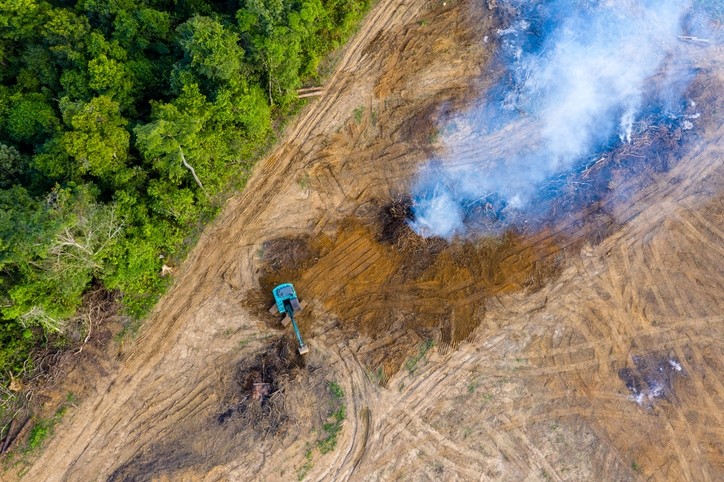11 Dec 2024

Tired Earth
By The Editorial Board

The six companies are members of the World Business Council for Sustainable Development (WBCSD)’s Soft Commodities Forum (SCF). They include Dutch companies Louis Dreyfus Company and Viterra, and Geneva-based COFCO International. They are joined by the US-based Bunge, Cargill and MN.
SCF members are committed to eliminating deforestation and native vegetation conversion in their soy supply chains in the Cerrado region, balancing economic, social and environmental priorities.
Like its better-known neighbour, the Amazon, the Cerrado biome in East-Central Brazil is home to 5% of the earth’s biodiversity. The country is also the world’s largest exporter of soy, with about 30% of global production, and about half of the production is concentrated in the Cerrado.
While SCF members can more easily trace soybeans purchased directly from soy farms, tracing soy acquisitions from indirect sources (which represent roughly 22% of their collective soy purchases) is far more complex.
To address that challenge, SCF members have developed a collective protocol to monitor and trace soybeans from indirect suppliers.
Developed with the Brazilian Association of Vegetable Oil Industries (ABIOVE), the new SCF protocol for indirect suppliers is a sectoral approach to help equip the intermediary soy resellers with adequate traceability systems.
The six SCF members are now able to publicly disclose deforestation- and conversion-free soy purchases sourced from 61 focus municipalities in the region, which represents 70% of the area at-risk for deforestation associated with soy. This includes soy sourced directly from farmers and indirectly from intermediaries such as grain aggregators, farm cooperatives and mills.
The joint initiative is designed to send a strong market signal to producers that SCF members are seeking to do business with suppliers that are in line with SCF objectives, and are capable of tracing their own sourcing to guarantee it is deforestation- and conversion-free. SCF will also engage and support indirect suppliers to become more prepared for the market demand.
Additionally, the SCF has established a three-year strategy – called the Farmer First Clusters Initiative – to preserve priority Cerrado landscapes. The strategy proposes financial incentives to encourage farmers to preserve forests, adopt sustainable land use practices and to protect the ecosystem.
“Traceability is the baseline for credibly meeting targets in line with a 1.5-degree climate pathway,” said Diane Holdorf, WBCSD’s Executive Vice President. “The progress made by the Soft Commodities Forum to advance its nature-positive agenda is critical to help achieve a resilient, equitable food system. Their work moving forward to accelerate and scale action on the ground with farmers demonstrates the momentum needed.”
Commitments ‘fail’ to address demand for meat and dairy
But environmental campaigners warned that unless meat reduction is tackled, ‘anything else is very likely greenwash’. Soybean meal is widely used as animal feed, and therefore humans consume much of it indirectly via meat and dairy, it said.
“Let's be clear, to end deforestation – and halve global emissions by 2030 as science demands – a significant reduction in global meat and dairy consumption and a halt to the expansion of industrial agriculture is needed,” Daniela Montalto, Greenpeace senior forests campaigner, told FoodNavigator.
Commitments in the agricultural commodity sector, she claimed, ‘entirely fail’ to address demand for meat and dairy, while forest destruction and climate change through livestock production and the use of soya for animal feed continues at ‘skyrocketing rates’.
“Instead of focussing on what’s necessary, leading agricultural trade associations representing some of the world’s biggest soya traders – including ADM, Bunge and Cargill – have lobbied EU Climate Commissioner, Frans Timmermans, warning him that the EU’s proposed deforestation legislation ‘would not have the desired impact’ and would cause ‘major price increases and problems of availability’ for grains and animal feed.”
Source : foodnavigator.com
Comment